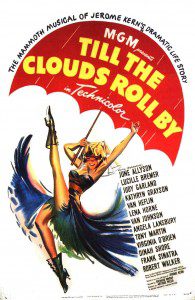During one of my evening writing sessions, one of my characters said, “Alright!” A few lines later, I looked back and wondered whether I should have written, “All right!” My spellchecker had not underlined the word, but it didn’t feel proper.
As I debated the issue, it seemed that the word alright had a different meaning from the phrase all right. For example:
“Are you okay?”
“I’m alright.”
Compared to this:
“Did you check my answers?”
“Yes. They were all right.”
What Experts Say
Since my writing flow had already been interrupted, I decided to do some research. Here is what I found:
- A number of websites claimed alright wasn’t a real word. They said to always use all right.
- However, Merriam Webster listed it and said its use dates back to 1810. They noted a debate over the use of alright and stated that it occasionally appeared in formal writing.
- Dictionary.com said alright was a one-word variant of all right often used in dialogue and informal writing but not in formal compositions.
- However, according to the The Chicago Manual of Style
and the Associated Press Stylebook, using alright was all wrong.
Summary
So there you have it. It is NOT all right to use alright in novels or other formal compositions.
Meanwhile, my music player randomly queued up It’s Alright from Huey Lewis and the News’ Greatest Hits compilation. (Don’t you love serendipity?) As I listened to them snap their fingers and sing a cappella, I recalled they had another song on the same album: But It’s Alright. Someday, I think it will be all right to use alright. But not today.
This article mentions a book, which is listed in more detail below.
(Full disclosure: We get a commission if you click the link and make a purchase.)
Comments
Related Posts

Beta Reader Instructions
After you type those magic words (THE END) into your manuscript, you will want to have a few beta readers review it. Here are the instructions I give my beta readers.

Plot Planning for Novels
After abandoning my third rewrite of my novel, I decided the time had come for some serious plot planning. Here’s what worked for me.

Till, ‘Til, Til or Until? Which is right?
I was sure that till meant breaking up dirt; that until meant “up to the time of”; and, when people shortened until in speech, you wrote it as ’til – or maybe just til. But, after a little research, I learned I had it wrong.

How to Overcome Writer’s Block – A Compendium of Solutions
I’ve compiled the best tips on overcoming writer’s block from all around the web. If your stuck, here are some great ideas to help you break through.




